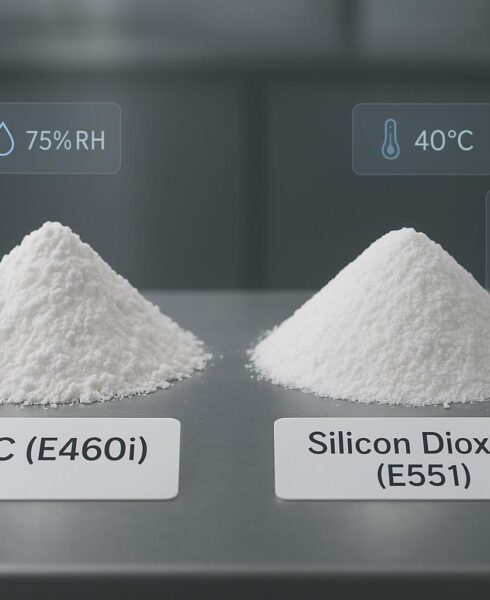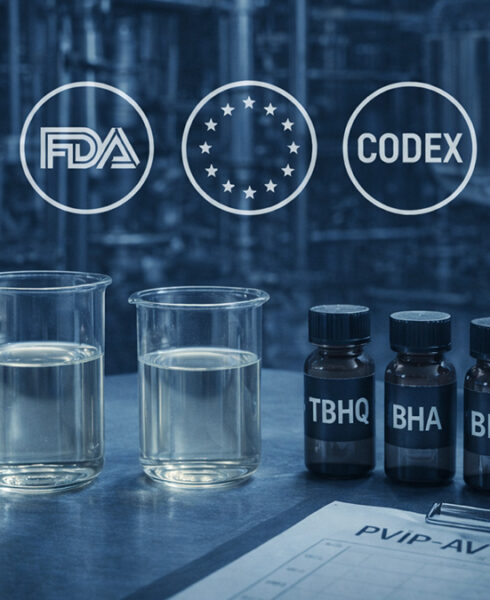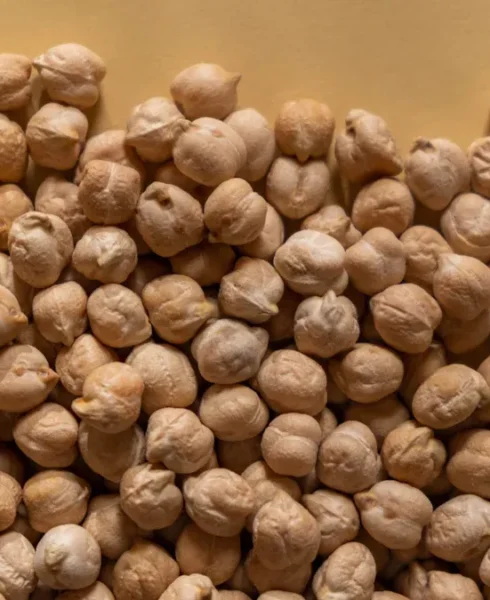You can support your immune system by consuming foods rich in whey protein peptides. Whey protein peptides boost immunity by interacting with your body’s defense cells. When you consume whey protein, your digestive system releases these unique peptides. Some of these peptides resist breakdown by enzymes. Fermenting whey can increase the amount of peptides that help reduce inflammation. Research shows that whey protein isolates encourage the growth of lymphocytes, which strengthens your immune response.
Key Takeaways
Whey protein peptides help your immune system. They make immune cells work better. This helps your body fight infections more easily.
Eating whey protein can lower swelling in your body. This helps keep your immune system balanced.
Whey protein peptides give many health benefits. They help muscles grow. They help you control your weight. They also help your gut stay healthy.
Adding whey protein to your meals can make you feel better. It may help stop long-term diseases.
Always talk to a doctor before using whey protein supplements. This is very important if you have allergies or health problems.
Whey Protein Peptides Immunity

Immune System Support
Eating foods with whey protein peptides can help your immune system. These peptides are important for your body’s defense against sickness. When you eat whey protein, your body takes in special peptides. These peptides work with immune cells. They help lymphocytes do their job better. They also help your body make more immunoglobulins. If you eat whey protein, your body may fight infections more easily.
Tip: Whey protein peptides immunity helps by giving your body nutrients. These nutrients help immune cells work and fight off threats.
Scientists have looked at how whey protein peptides immunity works in healthy people and those who are sick. The table below lists some key studies:
Study Title | Findings | |
|---|---|---|
Whey products helped non-infected mice make more IgA; different peptides had different effects. | ||
Whey as a source of peptides with remarkable biological activities | The F3 peptide helped raise TGF-β1 and IgA in both healthy and sick mice. | |
Whey Protein: Empowering Immune Health | Whey protein extracts helped immune cells grow and work better. |
Whey protein peptides immunity works in many ways. The table below shows how these peptides help your immune system:
Mechanism | Description |
|---|---|
Immunoglobulins | Help immune cells and stop germs from sticking to your body. |
Glutamine | Gives energy to immune cells and lowers sickness after exercise. |
Lactoferrin | Holds iron to stop bacteria from growing and helps your body use iron. |
Sialic acid | Stops bad bacteria from sticking to gut cells and helps good bacteria grow. |
Casein-Macropeptide | Fights bacteria and stops some bacteria from growing. |
Beta-lacto-globulin | Gives amino acids to help immune cells work. |
Selenium | Makes your immune system stronger and raises selenium in your body. |
Whey protein peptides immunity helps your body fight infections and keeps your immune system strong.
Health Benefits
Whey protein peptides immunity does more than help your immune system. You get many health benefits when you eat these peptides. Here are some ways whey protein peptides help your health:
Help wounds get better
Help with weight control and body shape
Make you feel full longer
Help you stay healthy
Studies show whey protein peptides immunity helps immune cells work better. For example, a whey-peptide diet made tumors smaller and lowered swelling in mice. Other studies show these peptides help immune cells and make them work better.
Whey protein peptides immunity can help you in other ways too. Here are some health benefits:
Whey protein can help your body make more insulin and lower blood sugar in people with type 2 diabetes.
Whey protein hydrolysates fight cancer better than regular whey protein.
These peptides lower stress and swelling in gut cells.
Whey protein helps with brain problems and helps neurons make more glutathione.
Scientists have also checked how whey protein peptides affect mood and well-being. One study showed that healthy adults who took a whey protein decapeptide felt happier and less tired.
Whey protein peptides immunity gives you many health benefits. Eating foods with these peptides helps your immune system and makes you healthier.
What Are Whey Peptides

Definition
You might wonder what whey peptides are and why they are important. Whey peptides are short chains made from amino acids. They come from whey protein. Your body makes these peptides when it digests whey protein. Enzymes break down the protein and release the peptides. Scientists call these chains “bioactive peptides.” These peptides can help your body in different ways.
Note: Bioactive peptides stay hidden in the main protein until enzymes release them.
Here is a table that explains how scientists describe bioactive peptides:
Characteristic | Description |
|---|---|
Length | Usually 2–40 amino acids |
Activation | Released from parent proteins by enzymatic hydrolysis |
Biological Activity | Show antioxidant, anti-hypertensive, and immune effects |
Inactivity | Remain inactive inside the parent protein |
Health Impact | Must cross the gut barrier to help your body |
You get these peptides from whey protein in a few ways. The main way is called enzymatic hydrolysis. Your body uses enzymes like pepsin, trypsin, and chymotrypsin to break down whey protein. Some companies use plant enzymes or microbes to make more peptides. Physical methods like microwaves or ultrasound can also help make peptides.
Types
Whey protein has many kinds of bioactive peptides. Each type does something special in your body. Some peptides fight germs. Others help your immune system or lower swelling.
Here is a table that lists important peptides in whey protein and what they do:
Peptide Name | Bioactivities |
|---|---|
Beta-casomorphin-7 | ACE-inhibitory, anti-anxiety, anticancer, antioxidant, immunomodulatory, satiety-promoting |
Peptide 141TPEVDDEALEK151 | Antimicrobial activity against harmful bacteria |
Glycomacropeptide (GMP) | Immune modulation, anti-inflammatory, supports gut health |
Total Distinct Bioactivities | 18 different bioactivities identified |
Notable Activities | Antimicrobial, antioxidant, DPP-IV inhibitory, anticancer, opioid activities |
Glycomacropeptide (GMP) is a very important whey peptide. GMP helps your immune system in many ways. GMP lowers signals that cause swelling from immune cells. GMP helps macrophages work better. Macrophages eat germs in your body. GMP raises IgA, which is an antibody that protects your gut. GMP lowers IgG, which affects your whole immune system. GMP also helps stop swelling in the gut, like some medicines for bowel disease.
You can see that whey peptides have many good effects. They help your body fight germs. They lower swelling and help your immune system. If you eat foods with whey peptides, you give your body strong tools to stay healthy.
Immunomodulatory Properties
Regulation
Eating foods with whey protein peptides helps your immune system. These peptides change how immune cells react to threats. They can lower signals that cause swelling. This helps your body stay balanced. When you eat whey protein, some peptides change how cells talk. For example, degalactosylated whey protein lowers TLR4 mRNA in mouse macrophage cells. This means your body may not overreact to germs. Cathelicidin peptides from whey can stop TLR4 from turning on. This keeps your body from making too many swelling signals.
Tip: Whey peptides help your immune system by changing chemokine receptors and Toll-like receptors (TLRs). This lets your body fight germs without too much swelling.
Whey protein peptides help your body stay strong and avoid too much inflammation.
Anti-Inflammatory
Whey protein peptides help lower swelling in your body. These peptides block signals that make you inflamed. For example, whey protein hydrolysate from Binglangjiang buffalo stops cells from making too much NO, TNF-α, and IL-6. These are signals that cause swelling. Two new peptides, DQPFFHYN and YSPFSSFPR, help lower these signals in immune cells.
These peptides also work in your gut. Whey protein hydrolysate helps mice with colitis feel better. It changes gut bacteria and helps the gut wall stay strong. The peptides clean up free radicals and grab metal ions. This helps lower swelling.
Here is a table that shows how whey protein peptides work with important pathways in your body:
Evidence Description | Findings |
|---|---|
Casein hydrolysate’s effect on NF-κB | Lowered phosphorylation of NF-κB p65 in a dose-dependent way |
Role of PPAR-γ in NF-κB modulation | GW9662 stopped the effects of casein hydrolysate on NF-κB, showing a PPAR-γ dependent process |
Comparison with PPAR-γ agonist | Troglitazone, a PPAR-γ agonist, showed similar effects on adhesion molecules |
These pathways help control swelling and keep your immune system balanced.
Antimicrobial
Whey protein peptides help fight germs in your body. Scientists found special peptides from β-lactoglobulin and α-lactalbumin that stop bacteria from growing. The peptide fragment 14–18 (KVAGT) is like other antibacterial peptides. Five more peptides from β-lactoglobulin and one from α-lactalbumin (f117–121, KVGIN) also fight bacteria.
Whey protein peptides can also protect you from viruses. These peptides show strong antiviral effects, especially against SARS-CoV-2. Studies show they can stop viruses like Hantavirus and influenza virus A (H1N1). Whey milk and its parts fight many types of bacteria found in sick people.
Note: Eating foods with whey protein peptides gives your body tools to fight both bacteria and viruses.
Mechanisms
Cell Interaction
When you eat whey protein, your body breaks it into smaller peptides. These peptides meet important immune cells called monocytes and macrophages. These cells act like guards for your body. Whey protein peptides help these guards do their job better. They can lower how much nitric oxide your cells make when fighting germs. This helps control swelling and keeps you safe.
Here is a table that shows how whey protein peptides affect immune cells:
Effect | Description |
|---|---|
Nitric Oxide Production | Peptides lower nitric oxide made by immune cells during swelling. |
Pro-inflammatory Cytokines | Peptides stop signals that cause swelling, like TNF-α. |
MAPK Pathway | Peptides block cell signals that lead to swelling. |
Cell Proliferation | Peptides help immune cells grow and multiply. |
Your body gets more benefits when it absorbs these peptides fast. Enzymatic hydrolysis breaks whey protein into even smaller pieces. These smaller peptides enter your blood faster and help your immune system work better.
Cytokines
Your immune system uses cytokines to send messages between cells. Whey protein peptides help balance these messages. Some peptides lower signals that cause swelling. Others help your body heal.
Whey protein has special proteins that can change swelling.
Lactoferrin and α-lactalbumin help control swelling.
Glycomacropeptide (GMP) mostly lowers swelling.
Here are some ways whey protein peptides change cytokine levels:
They lower pro-inflammatory cytokines like TNF-α, IL-6, and IL-1β.
They raise anti-inflammatory cytokines such as IL-4.
They reduce harmful signals after your body faces germs.
You can see how these peptides help your body stay balanced and healthy.
Cytokine | |
|---|---|
IL-6 | Linked to obesity and tumor growth. |
IL-8 | Helps tumor cells move and grow. |
MCP-1 | Connected to fat tissue and metabolism. |
IP-10 | Promotes tumor growth and frailty. |
Signaling Pathways
Whey protein peptides also affect important signaling pathways in your immune cells. These pathways control how your body reacts to threats. Peptides can block the NF-κB pathway, which lowers swelling. They also lower the amount of harmful cytokines.
Signaling Pathway | Effect of Whey Protein Peptides |
|---|---|
NF-κB | Peptides block activation and lower swelling. |
Pro-inflammatory Cytokines | Peptides lower their production. |
Whey protein peptides help your immune system by changing how cells talk and react. You get better protection and less swelling. Immunonutrition uses these peptides to keep your body strong and healthy.
Practical Implications
Nutrition
You can eat whey protein peptides for many health benefits. These peptides help your body in different ways. They help you lose weight by making you feel full and lowering body fat. They help your muscles grow and heal after you exercise. They help your heart by lowering LDL cholesterol and keeping blood pressure healthy. They help control blood sugar, especially after eating lots of carbs. They lower swelling by reducing C-reactive protein in your body. They help your body fight damage by raising glutathione, an antioxidant.
Whey protein peptides give your body amino acids. These amino acids help your muscles heal and get stronger. You also get nutrients that help your immune system work better.
Tip: You can put whey protein in smoothies, oatmeal, or yogurt to make your food healthier.
Disease Prevention
Whey protein peptides help your body fight sickness. Studies show these peptides help your immune system and protect you from many health problems.
Benefit/Condition | Description |
|---|---|
Immune Function | Makes your immune system stronger and helps stop sickness. |
Gastrointestinal Health | Helps your gut and may lower the chance of gut problems. |
Metabolic Diseases | Helps stop and manage problems with metabolism. |
Cancer | May help stop cancer and help people with cancer. |
Cardiovascular Disease | Helps your heart and lowers the chance of heart disease. |
Osteoporosis | Makes bones stronger and lowers the risk of weak bones. |
Chronic Stress | May help your body deal with stress better. |
Allergies | Might help stop some allergies. |
Whey protein peptides do more than help your muscles. They help your whole body stay healthy.
Supplementation
You can take whey protein peptide supplements to help your immune system. These supplements have special things like immunoglobulins, glutamine, and lactoferrin. Immunoglobulins help your body fight germs. Glutamine gives energy to your immune cells. Lactoferrin helps your body use iron and stops bad bacteria from growing.
Whey protein supplements can raise your immunoglobulin levels.
Lactoferrin in whey helps your body use iron and fight germs.
You should know about some risks. Some people may get acne or skin problems after using whey protein. Rarely, some people with health problems may have heart issues. If you are allergic to milk, do not use whey protein.
Note: Always ask your doctor before taking new supplements, especially if you have allergies or health problems.
You can make your immune system stronger by eating whey protein peptides. These peptides help your body fight germs. They also help lower inflammation. Scientists are finding new ways to study these peptides. They use better research methods. They look at what these peptides do in the body. They use computer studies to see how peptides fit with receptors. Artificial intelligence helps guess what peptides can do. Scientists test peptides in animals to check their effects. They compare computer guesses with real experiments.
Whey protein peptides help make new foods and drinks. These products help people with long-term diseases. They also help you feel better. Try adding whey protein peptides to your meals to stay healthy.
FAQ
What are whey protein bioactive peptides?
You get whey protein bioactive peptides when your body breaks down whey protein. These small chains help your immune system work better. Scientists call them “bioactive” because they can change how your body reacts to germs.
How do whey protein peptides support your immune system?
Whey protein peptides help your immune cells fight germs. You boost your body’s defense by eating foods with these peptides. They also lower swelling and help your body heal faster.
Can you take whey protein peptides if you have a milk allergy?
You should not take whey protein peptides if you have a milk allergy. These products come from milk. Ask your doctor before you try any new supplement.
What foods contain whey protein peptides?
You find whey protein peptides in dairy products like yogurt, cheese, and whey protein powder. Some nutrition bars and shakes also have added whey peptides.
Tip: Check food labels for “whey protein isolate” or “whey peptides” to make sure you get the right product.
Are there side effects from whey protein peptide supplements?
Most people do not have problems with whey protein peptide supplements. Some people may get acne or stomach upset. You should start with a small amount and see how your body reacts.







